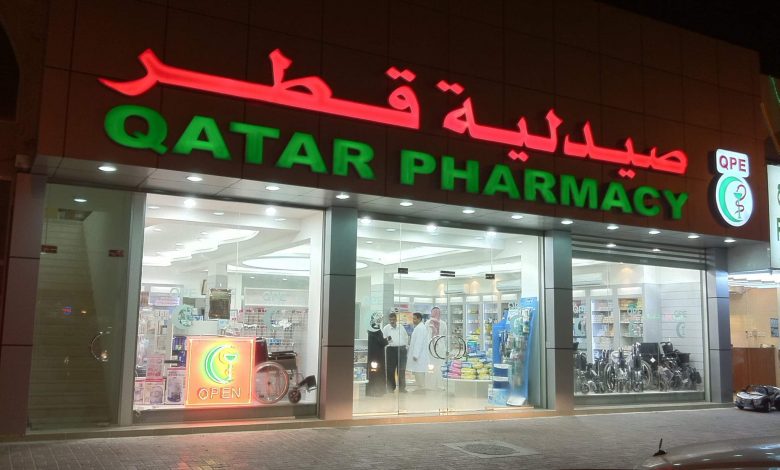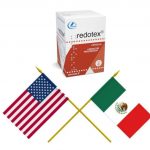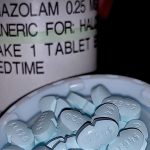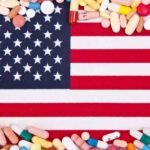Banned Medicines in Qatar

Qatar is a peninsular Arab country whose terrain comprises arid desert and a long Persian (Arab) Gulf shoreline of beaches and dunes. Also on the coast is the capital, Doha, known for its futuristic skyscrapers and other ultramodern architecture inspired by ancient Islamic design, such as the limestone Museum of Islamic Art. The museum sits on the city’s Corniche waterfront promenade.
Qatar is famous for Oil and Gas, and for the 2022 World Cup, travelers to this peninsular Arab country should be aware that certain medications are not allowed into the country. Medicines that contain narcotics or psychotropic substances are prohibited. If you need to bring controlled or prescription medication into Qatar, make sure you carry it in its original packaging, accompanied by your prescription and an official letter signed and stamped by your doctor stating the type of medication and why it’s required.
Qatar imposes severe penalties for possession, use, and trafficking of illegal drugs. Offenders can face long-term imprisonment and pay heavy fines, followed by deportation. Fines could range up to QR200,000, however, drug trafficking also carries a possible death sentence. Most of the Gulf countries have a zero-tolerance policy toward smuggling drugs or abuse.
List of Controlled or Banned Medicines in Qatar
The following are some of the major medicines either banned or tightly controlled in Qatar:
- Tramadol: Tramadol is an Opioid Painkiller used to relieve moderate to moderately severe pain, including pain after surgery. The extended-release capsules or tablets are used for chronic ongoing pain. Last month, officials at Hamad International Airport seized 100 pills of tramadol, 455 narcotic pills of another kind kept inside the medicine box, in addition to 18 pills of another kind of drugs.
- Lyrica: Lyrica is a brand of pregabalin, a drug used for the treatment of fibromyalgia. Fibromyalgia is a chronic disorder that causes long-term, widespread muscle pain and tenderness, trouble sleeping, and overwhelming tiredness. Lyrica is not an antidepressant. Rather, it is a drug that targets nerve signals. The medicine has long been used to relieve nerve pain in patients with shingles and diabetic neuropathy. It is also used to treat partial seizures. In 2021, customs at the Hamad International Airport foiled an attempt to smuggle around 600 Lyrica pills into Qatar. The contraband was seized from the baggage of a passenger coming from an Asian country.
- Valium: Valium is a brand of diazepam, a controlled substance drug in Qatar. Valium belongs to the benzodiazepine family that acts as an anxiolytic. It is commonly used to treat a range of conditions, including anxiety, seizures, alcohol withdrawal syndrome, muscle spasms, insomnia, and restless legs syndrome.
- Xanax: Xanax is a brand of alprazolam, a prescription medicine used to treat the symptoms of anxiety, panic disorder, and anxiety associated with depression. Xanax is a highly potent and addictive Benzodiazepine. It is a short-acting Benzo with high abuse potential. Unlike diazepam, Xanax prescriptions in Qatar are very few and far between.
- Clonazepam: Clonazepam is used alone or in combination with other medications to control certain types of seizures. It is also used to relieve panic attacks (sudden, unexpected attacks of extreme fear and worry about these attacks). Clonazepam is in a class of medications called benzodiazepines. It works by decreasing abnormal electrical activity in the brain. This medication is also banned.
- Zolpidem: Zolpidem is listed among the medications banned in Qatar. Sold under the brand name Ambien, Zolpidem is primarily used for the short-term treatment of sleeping problems. Guidelines recommend that it be used only after cognitive behavioral therapy for insomnia and behavioral changes, such as sleep hygiene, have been tried.
- Codeine: Being in possession of medication including cough syrups containing codeine can land you in a Qatari jail. Codeine is an analgesic with uses similar to those of morphine but it is much less potent as an analgesic and has only mild sedative effects. It is also used in the treatment of cough and diarrhea. Codeine is a centrally acting weak analgesic.
- Methadone: This is another tightly controlled substance in Qatar. Methadone works to treat pain by changing the way the brain and nervous system respond to pain. It works to treat people who were addicted to opiate drugs by producing similar effects and preventing withdrawal symptoms in people who have stopped using these drugs.
- Khat: The leaf and stem of this plant are used as a recreational drug and as medicine. As a recreational drug, the leaves and stems are chewed by people in East Africa and the Arabian countries to elevate mood (as a euphoriant). As a medicine, khat leaf is used for depression, fatigue, obesity, stomach ulcers, and male infertility. The cultivation, selling, or even casual chewing of Khat is prohibited in Qatar.
It’s recommended that any person traveling into Qatar with prescription medication takes a copy of their prescription with them, and keep it with their medicine at all times. It’s best to announce to customs officers that you have prescription medication with you on arrival. Flouting the laws around illegal substances is not a risk worth taking as the penalties can be severe.
Is Ayurvedic medicine available in Qatar?
Reports indicate that after several years of debate, Qatar authorities have approved the practice of homeopathy, ayurvedic medicine, acupuncture, chiropractic treatments, and hijama (wet cupping) in the country. However, only those who are licensed to offer such treatments will now be allowed to operate in the country
How can I get medicine in Qatar?
If you are a visitor to Qatar and need medication, you can dial Qatar Health Care Unified Contact Center 16000 and choose HMC’s Medical Services then choose HMC’s Pharmacy Delivery.





